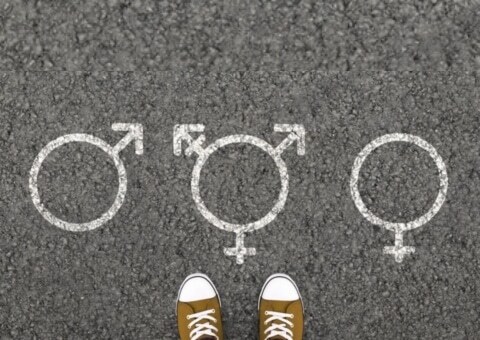Identity vs Preference
In recent times, there has been a notable increase in discussions pertaining to the LGBTQ+ movement, leading to heated debates across various platforms. The promotion of understanding and inclusivity necessitates the practice of open-mindedness, active listening, and respectful dialogue, which unfortunately tend to be absent in these debates. To cultivate a society that truly embraces inclusiveness and comprehension, it is imperative to engage in dialogue that is characterized by openness and respect.
LGBTQ Movement
It is often observed that any form of critique directed towards the LGBTQ movement elicits intense emotional responses and is swiftly categorized as rooted in hatred, violence, or phobia. However, it is worth exploring whether there are legitimate concerns among those who hold differing views regarding the actions of this movement. Consequently, it becomes vital to create a space where such concerns can be voiced without immediate dismissal as expressions of animosity or aggression. The primary objective of this article is to provide an analysis of a specific issue that is intricately linked to the LGBTQ+ movement. This particular issue revolves around the fundamental question of whether sexual orientation should be regarded as an inherent aspect of one’s identity or merely categorized as a sexual desire.
Sexuality as an Identity
The LGBTQ community has emerged as a cohesive collective, prompting the need for a critical examination of sexuality as an identity. By assuming the label of a community, they have effectively likened themselves to racial or ethnic groups. However, it is crucial to acknowledge that sexuality primarily encompasses personal preferences rather than constituting a fundamental aspect of one’s identity. To illustrate, individuals attracted to a specific type of women, such as those who are tall, do not form a community solely dedicated to the admiration of “tall women.” Instead, their inclination toward particular physical attributes represents a personal preference or desire.
The problem arising from portraying LGBTQ individuals as a community or race lies in the tendency to conflate any criticism directed at their sexual behaviors with an attack on their core being. This line of thinking presents inherent challenges since, unlike racial or religious identities, sexual actions may incorporate elements that are subject to moral, ethical, or societal considerations. Moreover, the LGBTQ movement often refers to itself as being marginalized and bundles itself along with other, truly marginalized racial groups.
Balancing Terminology and Identity
The utilization of terms like “marginalized,” commonly employed by groups that have genuinely faced marginalization based on their skin color, presents another concern. The indiscriminate use of such terminology can dilute its significance and undermine the experiences of those who have historically endured systemic oppression and discrimination. Hence, caution must be exercised in employing terminology accurately and thoughtfully, in order to avoid minimizing the struggles of marginalized groups based on factors beyond sexual orientation.
It is essential to make a clear distinction between criticizing sexual actions and launching personal attacks that target an individual’s essence. Consider the scenario where individuals with sexual attractions towards minors or siblings perceive their orientations as inherent aspects of their identities. Should criticism of their sexual orientations be equated with hatred and bigotry? If sexual orientation forms the core of one’s identity, then what basis does the LGBTQ movement have to deny these individuals the same “equality,” “love,” and “human rights” they advocate for themselves? One possible response to this question is that attraction to minors or siblings is universally regarded as unethical and illegal due to the significant harm inflicted upon vulnerable individuals. Consequently, criticism of such actions does not stem from hatred or bigotry, but rather reflects a response based on moral and ethical principles. However, it is worth noting that this was precisely the case with homosexuality only a few decades ago. Considering the presence of drag queens and men dressed as women who insist on parading themselves in front of children, it becomes uncertain whether the inclusion of pedophilia as part of an identity could potentially arise in the future.
The Problem of Sexual Orientation as an Identity
Understanding sexual orientation as an identity presents another more problematic quandary. If sexual orientations are considered as identities, should all sexual orientations be granted equal treatment? Does harboring disapproval towards homosexuality carry the same weight as disapproving of consensual adult sibling relationships or pedophilia? If we begin classifying certain orientations as morally wrong or unacceptable, does that constitute an assault on individuals’ identities? Should we cease to impose legal or social restrictions on sexual orientations such as attraction to minors or incest? By perceiving sexual orientation as an inherent facet of an individual’s identity, akin to their race or ethnicity, the argument against specific orientations loses its credibility.
When sexual orientation is deemed immune to discrimination, the task of discerning which sexual orientations are superior or more socially acceptable becomes challenging. If sexual orientation is regarded as equivalent to one’s identity, individuals with harmful attractions, such as pedophiles or those engaging in incestuous relationships, might assert that the LGBTQ movement discriminates against them and considers their “identity” as superior. This serves as evidence that, unlike race, sexual orientation is not purely an aspect of identity but rather connected to actions. The LGBTQ movement presents itself as an identity group and a minority, strategically redirecting the focus of the discourse from the sexual act to the individual’s identity.
The Debate on Sexual Preferences
Ultimately, the equation of sexual preferences with inherent aspects of personal identity carries substantial implications. When people define themselves solely based on their sexual preferences, any criticism directed at their sexual behaviors can be mistakenly interpreted as an attack on their entire being. However, this perspective overlooks the fact that sexual actions involve elements that are subject to moral, ethical, societal, and legal considerations. As a result, there are important questions about the extent to which we should accept all sexual orientations and the potential consequences of labeling certain orientations as unacceptable. The consequences of equating sexual preferences with unchangeable aspects of personal identity are central to the ongoing debate. When we consider sexual orientation, which includes both desires and actions, an important question emerges: Does criticizing a particular action mean attacking a person’s entire identity? To put it simply, can we compare being against certain sexual acts to being racist? If the answer is yes, does this mean that we need to accept all sexual actions, including those most deem abhorrent (incest, desires toward minors etc.)? These sexual desires are also orientations, are they not?
In this context, a significant problems that emerge when presenting sexual orientation as an identity. Treating it as an identity would imply that all sexual orientations, regardless of their taboo nature, should never face criticism. However, if sexual orientation is viewed as an action rather than an identity, then critiquing it should not be equated with phobia or bigotry. Accusations of bigotry can hinder meaningful discussions that have the potential to foster greater understanding. Such accusations often impede the exploration of different perspectives and limit the opportunity for constructive dialogue.
The Islamic Perspective
From an Islamic perspective, sexual desires and orientations are acknowledged to be part of the human experience. All humans experience sexual desires, acting on some within certain boundaries are acceptable, while acting on others are not. However, it is crucial to understand that these desires alone do not serve as defining characteristics of an individual. Islam delineates clear boundaries and guidelines regarding appropriate expressions of sexuality. Thus, it is not the sexual desires themselves that shape one’s identity or worth as a person, but rather the choices and actions made in accordance with Islamic principles.
In this perspective, Islam emphasizes the notion that human beings are multifaceted and should not be reduced solely to their sexual desires or orientations. One’s identity and worth are shaped by a comprehensive range of factors, including moral conduct, character, and adherence to God’s teachings and good deeds. Islam encourages individuals to recognize their inherent worth beyond their sexual desires and to strive for righteousness in all aspects of life.
By understanding the Islamic perspective on sexual desires and orientations, a holistic approach can be adopted that acknowledges the complexities of human nature while emphasizing the importance of aligning one’s actions with the moral teachings of Islam. We invite the reader to reflect on the balanced nature of Islam and its nuanced approach toward gender and identity within the framework of morality.
Have a question? Call 877-WhyIslam, you deserve to know!
Got Questions?
We have Answers. Get in touch now.








